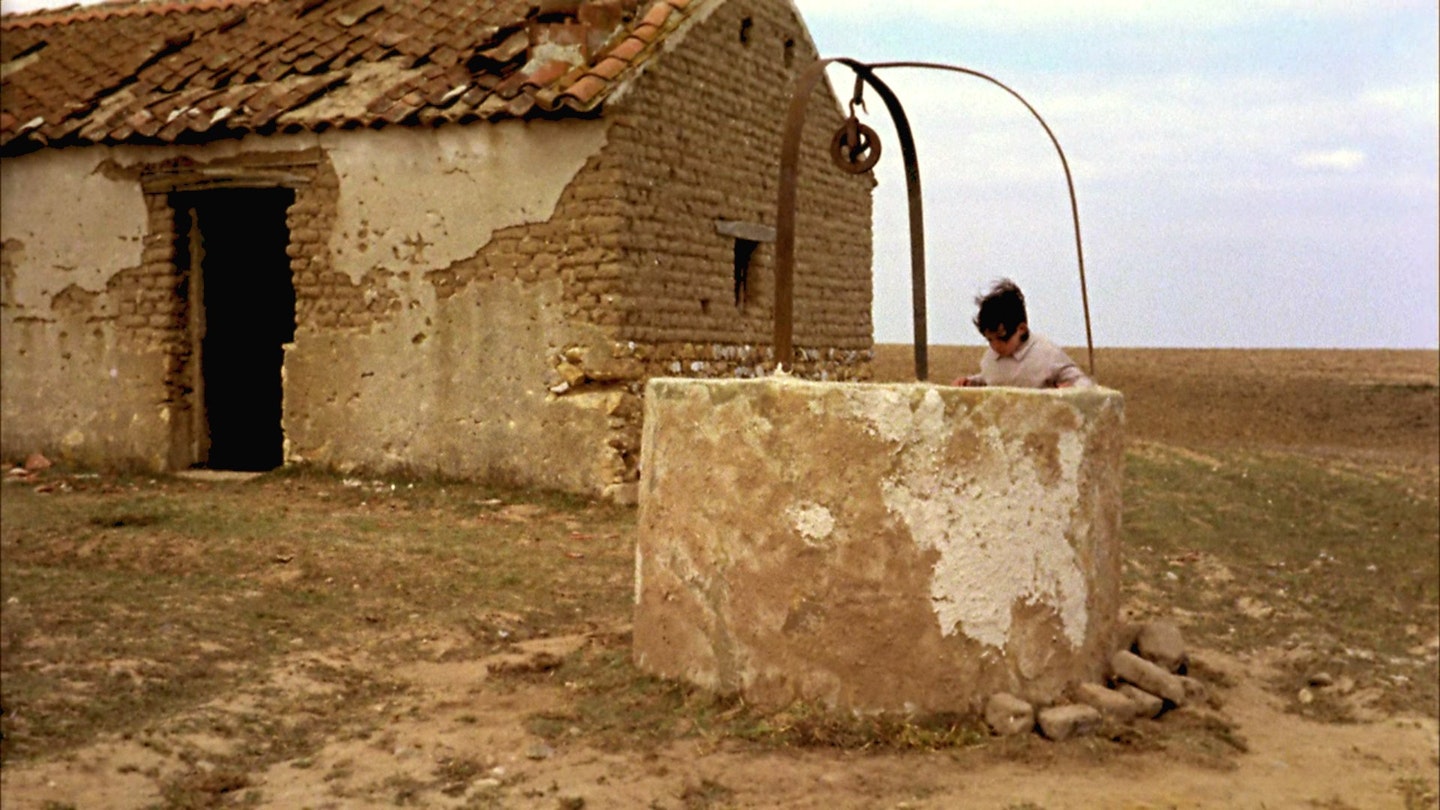With Ana Torrent's beguiling display of confused curiosity and trusting innocence recalling Brigitte Fossey's in René Clément's Jeux Interdits, Victor Erice's masterly discourse on juvenile psychology is an elliptical, lyrical exploration of myth, misunderstanding, deception and illusion that defies precise interpretation.
The action was sublimely photographed by Luis Cuadrado, who used long, static shots to convey the pace of life in Francisco Franco's new Spain and yellow filters to suggest the gloom that Ana and the nation would have to pierce to attain enlightenment. But this is a no mere political critique, as Erice eschewed overt allegiances in order to avoid the ire of Franco's famously sensitive censors. Instead, he concentrates on the three distinctive worlds that Ana comes to inhabit following her fateful encounter with Boris Karloff in James Whale's Frankenstein.
The first is the remote Castilian village, which has become a community of widows and casualties, despite evading the ravages of the Civil War. However, its poverty, despair, isolation and ennui are clearly attributed to the failure of Fascism and they also impinge upon the second world, inside the rundown farmhouse, where Ana's parents eke out an empty existence with the few belongings they managed to salvage during their flight from a large estate. Teresa spends her days writing to a young lover who may be a POW, an exile in France or long dead and her preoccupations are mirrored by Fernando's obsession with his journal, his bees and his occasional, furtive visits to the nearby city.
However, the Sunday screening affords Ana an escape from this stifling confinement and she eagerly comes to equate the deserter with the helpless Creature, who so aroused her compassion that she accept him as a surrogate father (hence giving him Fernando's treasured timepiece). Indeed, the two are so bound together in her mind that even when the deserter is arrested and shot, she takes comfort from discovering the ability to summon the Monster at will - even though his lack of memory, instinctive immorality and willingness to destroy what he does not understand identify him with the Caudillo.
